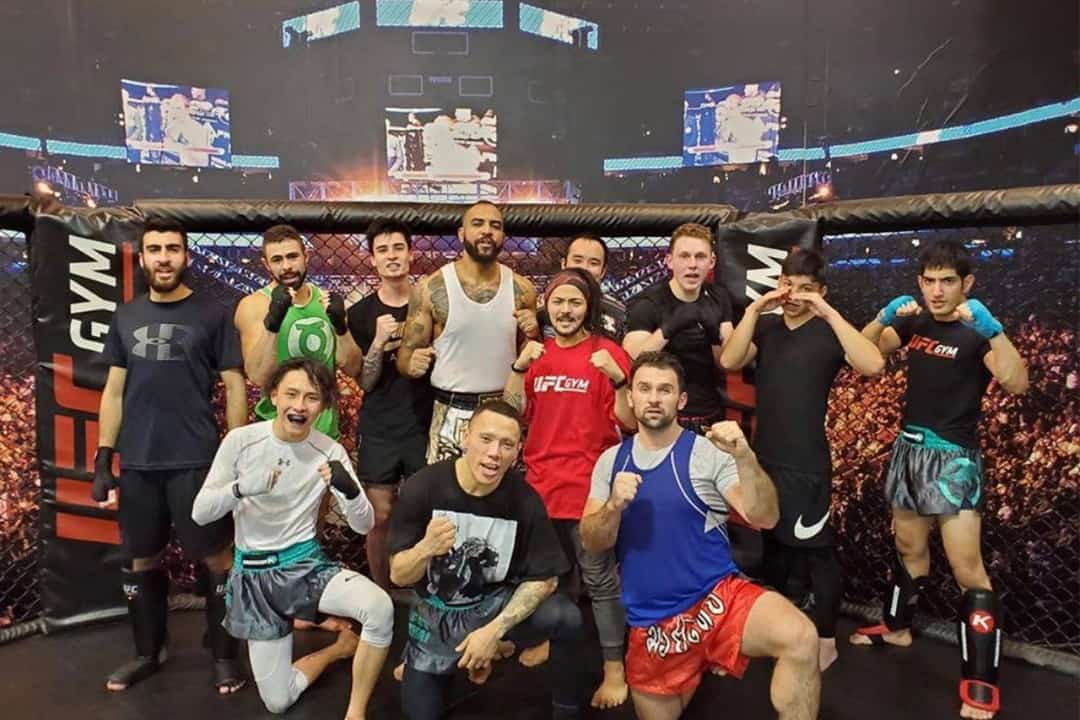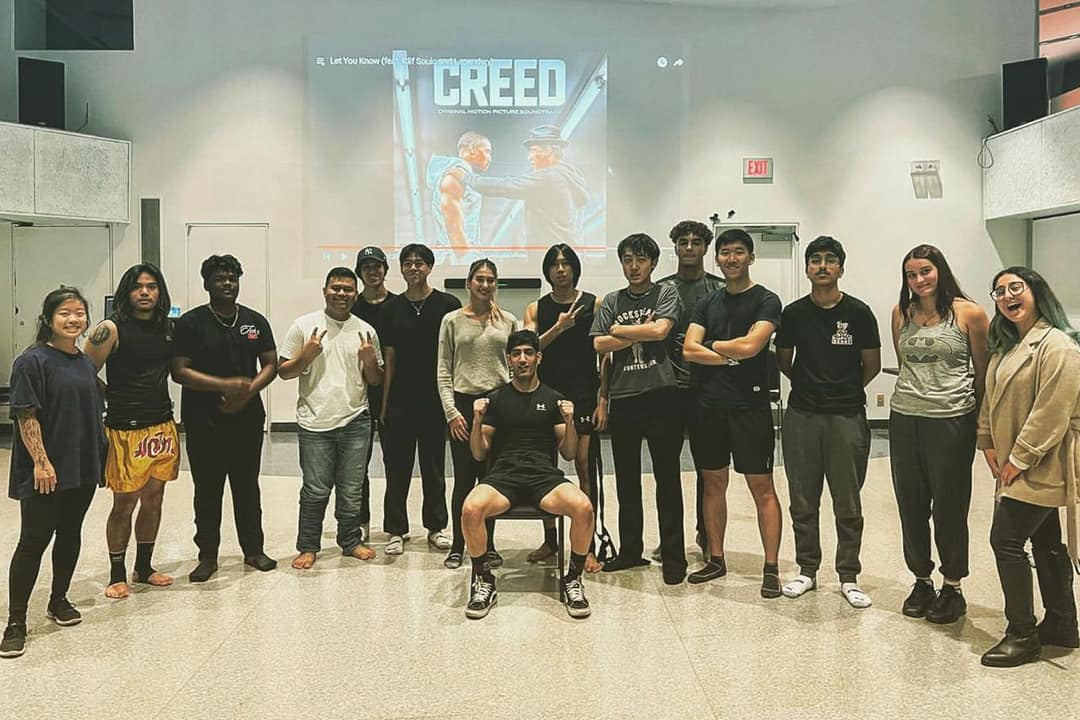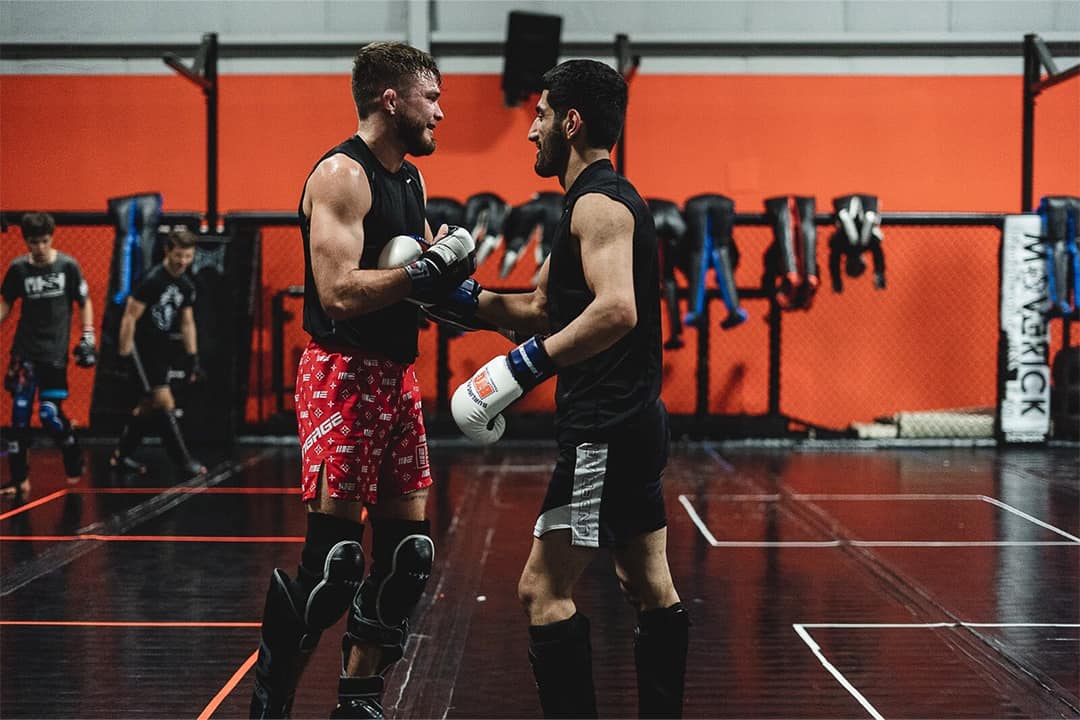The UTM Cobra Muay Thai Club is spearheading the early stages of a martial arts revolution. It’s a movement that the club hopes can take place in Ontario, the heart of Canada.
Executive director Talha Çelik, as well as Ahmad Siyar Habibi — the head coach and president of the Canadian Traditional Taekwondo Association, a partner of the Cobra Muay Thai club — spoke to The Varsity about their goals for the future of the club and of martial arts in general. Çelik explained that they both envision going “beyond the realm of traditional martial arts” by “encompass[ing] interdisciplinary and transdisciplinary approaches.”
An interdisciplinary approach
Çelik and Habibi described observing a trend towards a more holistic martial arts education recently emerging across North America, Asia, and Europe.
With the popularization of mixed martial arts (MMA), various disciplines have been “amalgamating into one whole,” Habibi explained. Rather than the common multidisciplinary approach, which separates martial arts practices into different elements, MMA involves incorporating these different elements into a holistic training regimen. Different focuses of MMA training — such as calisthenics, fitness and strength, conditioning, striking, and grappling — all come together to build an interdisciplinary approach and a more holistic understanding of martial arts.
Because of the country’s rich history in martial arts, Çelik and Habibi believe that right here in Canada, we’ll begin to see an academic approach to martial arts. “Past 2025, a revolution is going to take place, and it’s going to change how martial arts is being practiced,” explained Habibi.
One of the goals of the Cobra Muay Thai club is to promote health and fitness through MMA by making the practice more accessible to all. Cobra Muay Thai hopes to help members become more well-rounded by teaching diverse skills beyond what is available at typical martial arts classes.
The club hopes to achieve this by exploring the intersection of martial arts, philosophy, history, pedagogy, early child development, kinesiology, and more. It seeks to provide martial arts workshops, increase research opportunities for those interested in the academic side of martial arts, and build up communities of practice that practice martial arts together.
Partnerships and initiatives
The Cobra Muay Thai club has partnered with multiple esteemed institutions, including the Social Sciences and Humanities Research Council of Canada andthe European Union’s Erasmus+ project, to further develop its martial arts programming. The Erasmus+ project is focused on offering opportunities for youth in education, culture, and sport, as well as promoting mental and physical health.
Cobra Muay Thai and its partners have lofty ambitions to help make Canada a thriving hub of martial arts studies. This means that their initiatives are open to martial arts professionals, but their programming is also focused on serving Canadian youth. Its initiatives extend to the local community, as it provides youth educational programs and workshops. Through these programs, the Cobra Muay Thai club hopes to “promote martial arts and holistic fitness, fostering a broader understanding and appreciation within society,” as Habibi explained.
“Inclusion of [martial arts programming] within the K–12 [curriculum] would be something that we’re looking into,” shared Habibi. Habibi and his team at the Canadian Traditional Taekwondo Association have had prior experience bringing martial arts initiatives to different school boards across Central Asia. “Now it’s time to take this movement and bring it to Canada,” he added.
A holistic curriculum
Habibi explained that Cobra Muay Thai and its partners hope to play a part in creating a “more extensive global network of martial arts studies.” Habibi and Çelik hope that the club’s initiatives will add to the foundation of martial arts studies already created by prominent academics in the field, such as Professor Wojciech J. Cynarski of Rzeszów University and Professor Paul Bowman of Cardiff University.
Cobra Muay Thai hopes to strike a better balance between the practice of martial arts and more theoretical components of the sport, so that the martial artists can benefit from both. Through such a focus, the club believes that martial artists can benefit from research being conducted in the field of martial arts studies.
The club has put together a curriculum that reflects its commitment to holistic development. This curriculum includes classes on the “Anatomy of Martial Arts,” guides to stretching, strength and conditioning, information on the biomechanics and kinematics of muay thai, and calisthenics. Habibi explained that this curriculum is a preview of what the club “envision[s] martial arts [will] be taught like in the future.”
This curriculum forms part of a pilot project for the club’s educational initiatives, which it hopes to build upon and bring to more people with the help of its partner organizations.
Opportunities
By forming connections with partner organizations at over 500 facilities in Canada and the US, Cobra Muay Thai hopes to allow their members to network and meet other martial artists. In the future, the club hopes to partner with more faculty-led and student-led groups at U of T, working with groups in the biology and kinesiology departments as well as with UTM’s MMA club.
Furthermore, Çelik shared that some professional martial artists, including current and former UFC fighters, are interested in the project and have consulted with the club on certain issues. Jasmine Jasudavicius, who competed at UFC 297 in Toronto last month, is one such fighter. “We are very moved by their attention to us,” Çelik said.
The club has also consulted with retired UFC fighter Khabib Nurmagomedov and current UFC fighter Belal Muhammad. They also hope to involve members of other clubs and facilities, such as the Niagara Top Team, the Burlington Training Centre, and Xtreme Couture.
Cobra Muay Thai’s unique philosophy and programming, and the initiatives which they offer with their partners, are all part of their goal to promote and offer holistic and accessible martial arts education. With all this in mind, Çelik believes the club is helping set the path for “the martial arts revolution of the century.”





No comments to display.